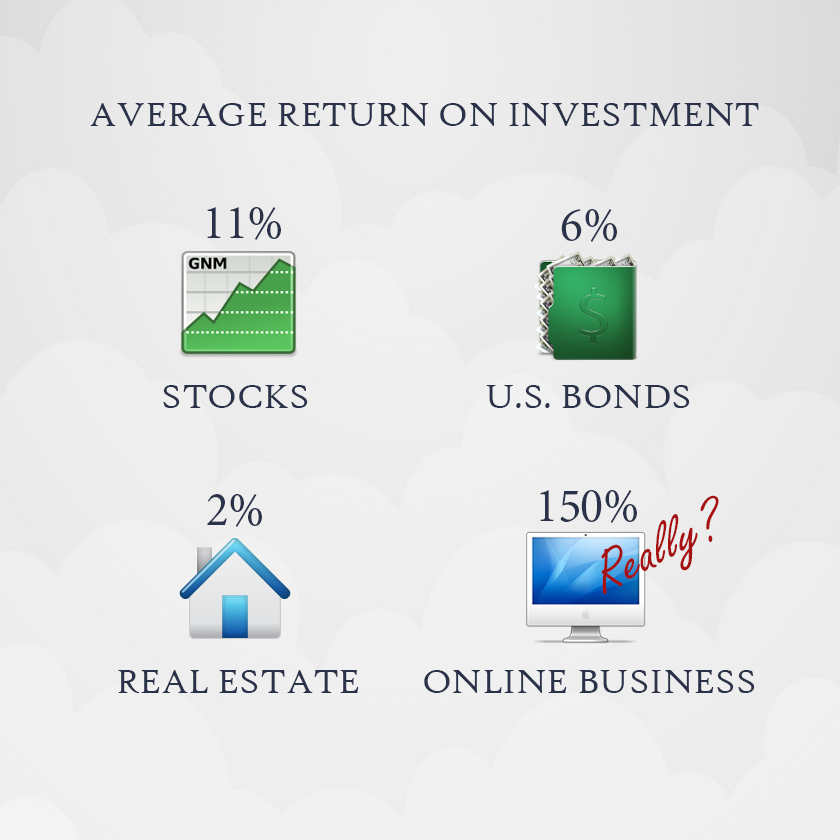The #1 Rule When Buying an Online Business
Buying online businesses often involves a significant learning curve, especially when dealing with more complicated businesses that come with a lot of moving parts. You need to know what’s the fair price to pay, how to complete proper due diligence, how to organise the handover of the business, what to do with the business after you’ve bought it and much more.
But everybody needs to get started somewhere. Because of this, I’m often asked questions along the lines of “what’s the one thing that I need to always bear in mind” or “what’s the one piece of knowledge that I absolutely need”. It’s a trick question, as most of what I’ve listed above is almost equally important, but if I must come up with the one most important thing that all web business buyers should know, then it would definitely be:
Don’t Take Anything You See at Face Value
This applies to almost everything you’ll encounter within the acquisition process – from the seller’s claims on how many hours per week the business takes to run, to how much money the site makes, to scans and copies of any documentation that you see.
Unfortunately, we’re operating in an industry where fraud and misrepresentation are an every day occurrence. This isn’t to say that there aren’t high-quality, non-fraudulent properties out there – of course there are. But at the same time as a buyer, you need to be as vigilant as humanly possible.
Let’s look at a few specific examples:
Broker Prospectus – One mistake that I see buyers make extremely often is taking what’s in the Broker Prospectus as “proof”, of sorts. There are two separate things to bear in mind here: Firstly, that the broker prospectus (or memorandum, or info-pack – however you want to call it) is a marketing document, and should be treated as one. Secondly and more importantly, these documents are prepared by brokers (not sellers), and in many cases aren’t even signed off by the seller. This means that unless the broker you’re dealing with takes responsibility over the claims provided within their prospectus (which is rarely the case), nothing that’s in there can be considered a warranty.
Any claims made within the prospectus that you believe are crucial to your purchase decision should therefore be added into the Purchase Agreement as warranties, as that’s the only way you can hold the seller liable should it turn out that there’s been some misrepresentation.
Profit & Loss Statement – Similarly to prospectuses, Profit & Loss Statements are unfortunately often prepared by brokers, based on incomplete information that they’ve received from the seller over phone or email. More reputable brokers publish strictly the numbers that they’ve received from the seller and don’t ever edit Profit & Loss Statements (with the exception of formatting, as well as elements like add-backs), but this is certainly not the case industry-wide. Many sellers and brokers alike also tend to publish approximates, rather than exact figures.
For this reason, I personally always recommend sellers to add a copy of the provided Profit & Loss Statement into the Purchase Agreement as an appendix, as similarly to claims provided within the prospectus, you want to stay secure should it turn out that any numbers on the P&L have been misrepresented.
Copies of Tax Returns – Whilst it’s becoming increasingly common for buyers to request copies of Tax Returns prior to purchase, I’m also noticing many buyers giving tax returns far too much credit than they deserve. Not only are tax returns usually provided on a piece of paper (or more commonly – a PDF file), making them extremely vulnerable to forgery, in the majority of cases it’s not even possible to tell whether the finances shown on tax returns have been generated by the asset that’s being sold, rather than side-activities of the company.
Owner Responsibility Claims – Even if the misrepresentation isn’t intentional, owner responsibilities is an area where problems often occur. This happens mostly due to the fact that the time it takes to perform certain tasks always differs from person to person – and more often than not, the seller being experienced in running the business, they spend much less time on routine tasks than the buyer would.
Always try and get a full understanding of ALL tasks involved in running the business, then figure out how long those tasks would take YOU to perform, and finally use your common sense to try to identify tasks that the seller has (intentionally or unintentionally) forgotten about.
In summary, when going through the acquisition process, always question every piece of documentation or information that the seller (or their representative) provides you with. Then disregard everything that you can’t either verify through third parties or logically explain, and make your purchase decision solely on the materials that remain.
It’s far easier said than done, especially as even at the higher end, purchase decisions are often at least partly emotional, but it helps to keep this in mind and try to follow the rule as good as you can, as it greatly reduces the risk of spending a small fortune on a low-quality business or worse – on a scam.








